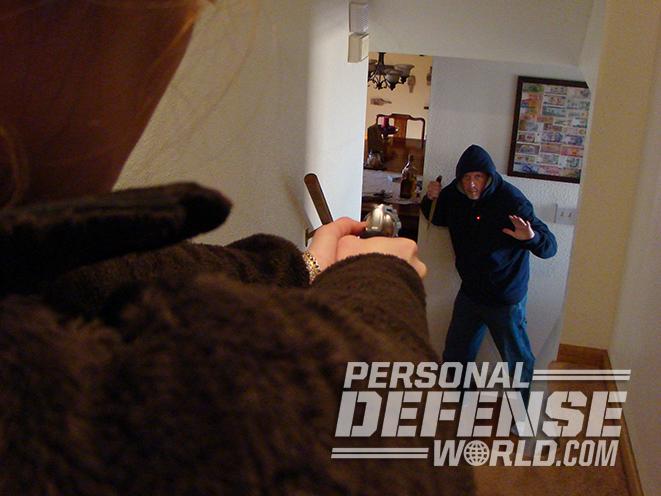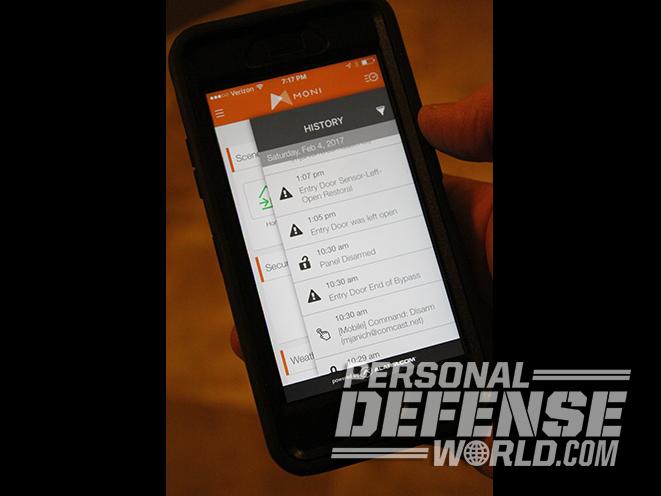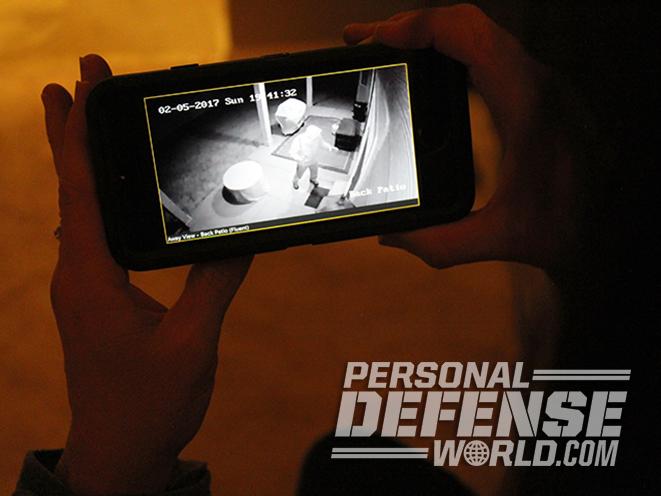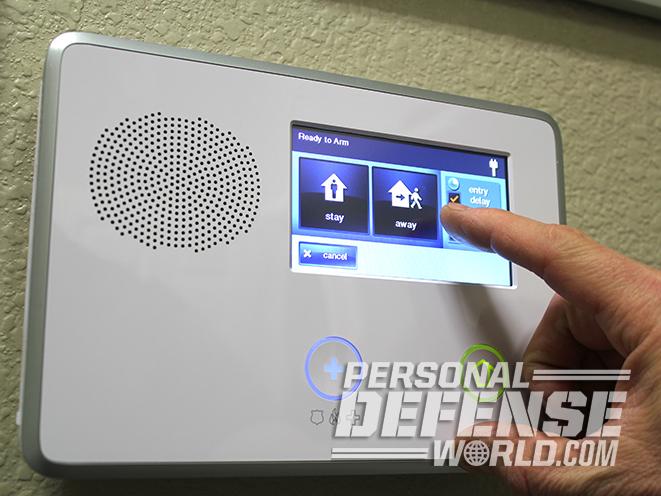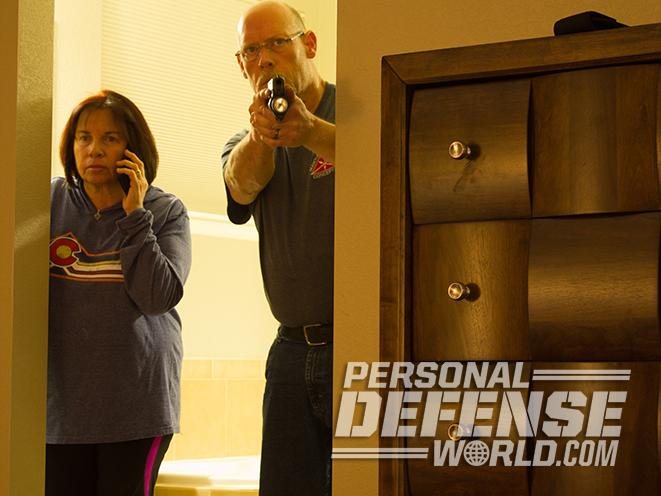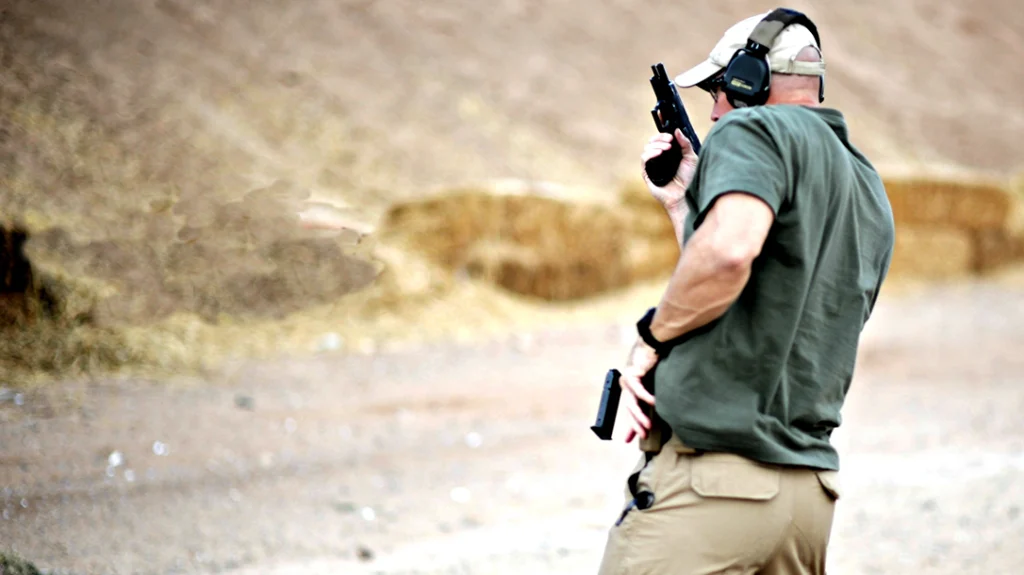Current data indicates that homes without security systems are 2.7 times more likely to be burglarized than homes with them. Advances in home security technology within the past few years have also made it easier and cheaper than ever before to equip your home with a good alarm system. But even if you’ve done everything right and your home is outfitted with a state-of-the-art security system, the question still remains: What do you and your family do when that alarm goes off? While the alarm system may provide early warning of an intruder and possibly summon the police, you still need to have a solid reaction plan tailored to your home and your family dynamics.
Bump In The Night
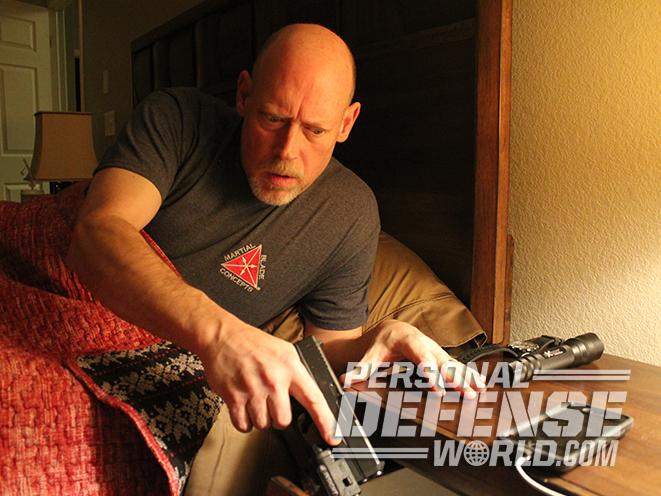
For the purposes of this article, let’s start with a solid, if somewhat stereotypical, example scenario: You and your family are asleep in your beds when your home’s alarm system goes off in the middle of the night. You’re abruptly woken out of a sound sleep, disoriented, and not sure exactly what’s going on. What do you do, and how do you tell the difference between a violent home invasion and a malfunction of your system?
- RELATED STORY: 12 Security Essentials to Prevent a Home Invasion
As simple as this scenario may sound, there is no hard-and-fast response plan that works for everyone. Let’s face it: The response for a husband and wife living in a one-bedroom condo is much easier to coordinate than it is for a family with several children in a sprawling multi-bedroom home. To create a plan that works for your needs, let’s focus on logic and a sound order of operations rather than black-and-white tactics.
Advertisement — Continue Reading Below
Understanding Your Alarm System
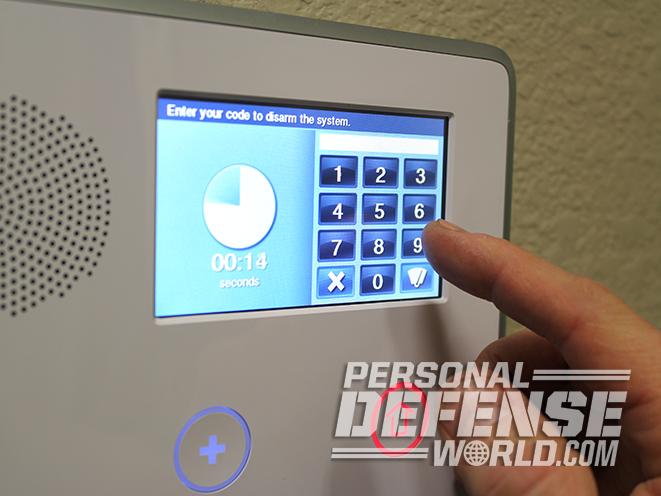
The first step in developing a response plan should be to understand how your alarm system works, what can cause it to go off and what’s supposed to happen when it does. The goal is to eliminate potential causes of false alarms and know what help—if any—to expect. For example, if your system only includes sensors that detect when a window or door is opened, you know that the alarm only sounds when the physical barriers of your home have been breached.
On the other hand, systems that include motion detectors or glass-break sensors can be triggered by wandering pets or anything that could be moved by air currents from your heating/cooling system. Read your system’s instructions carefully and work with your alarm company’s technicians to eliminate all possible sources of false alarms. That way, when your system does go off, you can be reasonably certain it’s the real deal.
It’s also important to understand the difference between having a monitored and unmonitored security system so you can structure your plan and other resources accordingly. If your home is connected to a monitoring service, when the alarm goes off, they will call you to verify that there’s an emergency before notifying the police. The primary number you give them to call should be your cell phone so they can contact you when you’re away from home and so you’re not dependent upon a landline that could easily be taken off the hook by an intruder. Make a habit of charging that cell phone on your nightstand so it’s with you and immediately accessible in an alarm emergency—not at the other end of the house.
Advertisement — Continue Reading Below
An unmonitored alarm system does not connect to anything or anyone outside your home. It’s basically an early warning system but will not “call the cavalry.” If you do need the police, having that cell phone next to your bed is even more important.
Either way, you should also research the 911 response times in your area to know how long you’ll be on your own before help is likely to arrive.
Never Assume
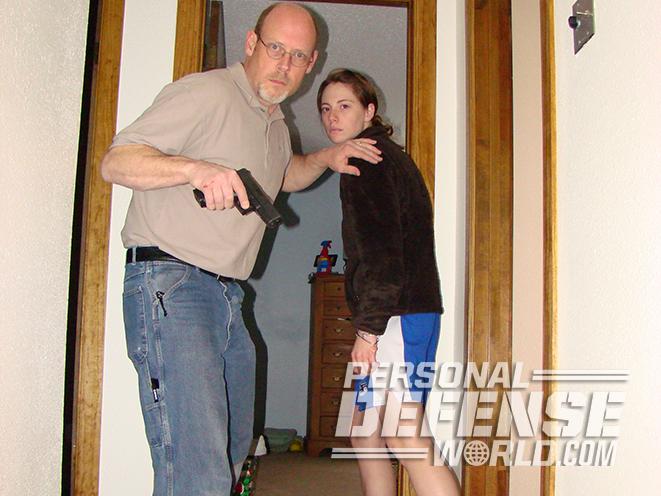
Once you understand how your alarm system works and have eliminated potential causes of false alarms, if the alarm goes off, you should have every reason to take it seriously. Rather than immediately assuming it’s a false alarm and turning it off, let the sound of the alarm act as a deterrent while you to take appropriate action. Your first priority should be to get your family into a “safe room” with a sturdy, lockable door and establish physical security to keep intruders out of that room. Unfortunately, this is where things can get really challenging.
Advertisement — Continue Reading Below
If a childless couple in a condo is awoken by an alarm, it makes sense for them to hunker down in place, securing the bedroom door while they sort things out. They could even sleep with their safe room door securely locked all the time. However, if your family includes multiple people in various rooms throughout the house, crafting a reaction plan is much more complicated. Your goal is to get everyone secured behind sturdy locked doors that would deny an intruder access. Ideally, you’d like everyone in the same room so it’s easy to account for and care for them all. If your children are mature enough to react on their own, you could designate your bedroom as the safe room and have them all assemble there before securing the door. If you have a younger child, you might use his or her room as a safe room because you can move to it quicker than going “round trip” to the child’s room and back.
This aspect of your plan is the most challenging because every family and every house floorplan is different. To formulate a plan that works for your family dynamics, talk through it with your family members, draft a plan and try it. If it doesn’t work, revise it as necessary until you have something that everyone is comfortable with.
If your family members are so spread out that consolidating them won’t work, you may need to create multiple safe rooms, but make sure you have an intercom, walkie-talkies or some other form of communications to account for everyone and their safety.
Advertisement — Continue Reading Below
What Happens Next
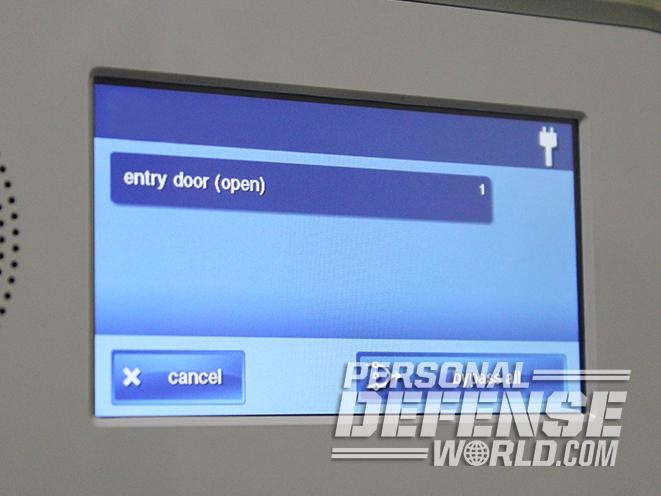
Once you’ve got all your loved ones secured and accounted for, it’s time to sort things out. Listen for movement in the rest of the house, dogs barking (if they didn’t make it into the safe room with you) or any other indication that there is an intruder in the house. Get your family behind cover and, if you have a firearm (ideally) or other weapon, access it and take up a defensive position away from the door.
Most modern security systems have a display that identifies exactly which sensor tripped the alarm. This function gives you a tremendous advantage because it tells you where the problem started and where a potential threat may have entered. For this reason, having a system control panel in your bedroom is a good idea. If that’s not possible, get a system that allows you to control and monitor it from a smartphone (you know, the one you remembered to charge on your nightstand). Either way, determine which sensor activated the alarm if you can.
If you have a monitored system, you should expect a call from them right about now. Answer it, confirm that the alarm was activated and—especially if you heard movement or have reason to believe someone attempted entry—ask them to dispatch the police. Stay on the line with them and follow their instructions to aid in the arrival of the police. If a door or window was actually opened, direct the police to that point of entry when they arrive. You should also be prepared to give them a key to get in. The best way to do that is to make an extra front door key, attach a chem light (“glow stick”) to it, and keep it in your safe room. When they arrive, break the chem light to activate it and toss it out the window to them.
Advertisement — Continue Reading Below
Once the police have searched your home and given you the “all clear,” secure your firearm and exit your safe room so you can cooperate with them on their investigation and report.
On Your Own
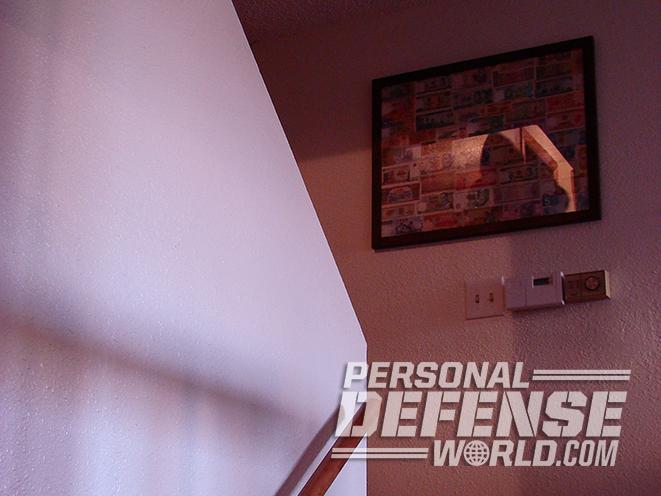
If you do not have a monitored security system, if the 911 response times in your area are extremely slow or if, for any other reason, waiting for the police to respond is not an option, your alarm response plan becomes even more difficult.
One smart alternative is to develop relationships with like-minded, ideally well-armed, neighbors who you can call to respond. Instead of the police, they are your “cavalry,” and you are theirs.
Advertisement — Continue Reading Below
If you must go it alone, remember that you are not a SWAT team and clearing your house by yourself is not a good idea. If you have other armed and trained adults to help with the process, take advantage of it, but do not make it a family outing. Keep the kids hunkered down so they are safely contained while you search.
Using your system tools to determine which sensor activated the alarm is a good head start; however, having “eyes” on the rest of the house is even better. In addition to an alarm system, consider a video security system that allows you to see key areas of the house from your safe room or a mobile device you can maintain there. A system with a DVR that allows you to rewind a few minutes to see if someone really entered the home is also an advantage.
Since your house is your home turf, you should know it better than anyone else and be the best qualified to search and clear it. If you’re smart, you should have also practiced a little “tactical interior decorating” to give you an unfair advantage—like positioning reflective objects to allow you to see around corners. Focus your search on the suspected point of entry first, if you can, to determine if a door or window was actually opened or whether there might have been a system malfunction that caused a false alarm. Even if it appears that everything is sound, finish your search and confirm that all other entry points are properly secured to put everyone’s minds at ease.
Advertisement — Continue Reading Below
If you suspect that you may have experienced a false alarm, contact your alarm company or have a trained professional check your system to make sure it’s functioning properly and that it’s configured to fit your house, your family and your lifestyle. Most importantly, don’t ever let yourself fall into the “boy who cried wolf” mindset with your alarm system. Remember, wolves are real, and they are hungry. Keep your guard up.
